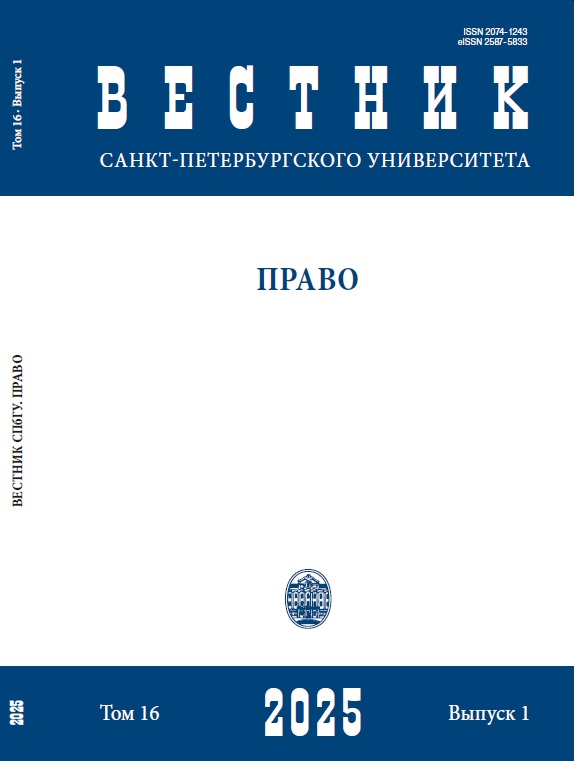Legal content of fraud in the field of consumer lending
Part two
DOI:
https://doi.org/10.21638/spbu14.2025.106Abstract
The article, based on an analysis of the practice of preliminary investigation and judicial practice that has developed in Russia in recent years in qualifying fraud in the field of consumer lending, substantiates the possibility of proving the status of injured citizens through a psychological and psychiatric examination that determines their mental state at the time of the commission of criminal acts against them. The role of proper qualification of fraud in the field of consumer credit is considered as a significant tool for stabilizing the functioning of financial markets in modern Russia. It is emphasized that it is the justified qualification of banks as financial victims as a result of fraud crimes, the purpose of which is the theft of funds from them, can become a significant factor in the active involvement of banks as professional participants in the financial market in actively combating this type of crime. The dynamics of law enforcement practice to protect the rights of victims of fraud in the field of consumer lending are characterized. It is shown that the key to the possibility of proper protection of their rights in court can only be the proper qualification of such crimes and the identification
of victims by the preliminary investigation authorities and courts. The most significant recent
step towards ensuring proper protection of the rights of victims of fraud crimes in the field of
consumer lending is characterized by a change, as a result of the efforts of the St. Petersburg
Prosecutor’s Office, in determining the circle of victims in criminal cases of fraud in the field of consumer lending. The necessity of adjusting the current judicial practice in the field of fraud in this area, which is developing in contradiction to the provisions of the Constitution of the Russian Federation, is proved.
Keywords:
fraud, credit, victim, property damage, moral damage, onstitution, legality, corporation, unity of court, instrument for committing a crime
Downloads
References
Downloads
Published
How to Cite
Issue
Section
License
Articles of "Vestnik of Saint Petersburg University. Law" are open access distributed under the terms of the License Agreement with Saint Petersburg State University, which permits to the authors unrestricted distribution and self-archiving free of charge.






